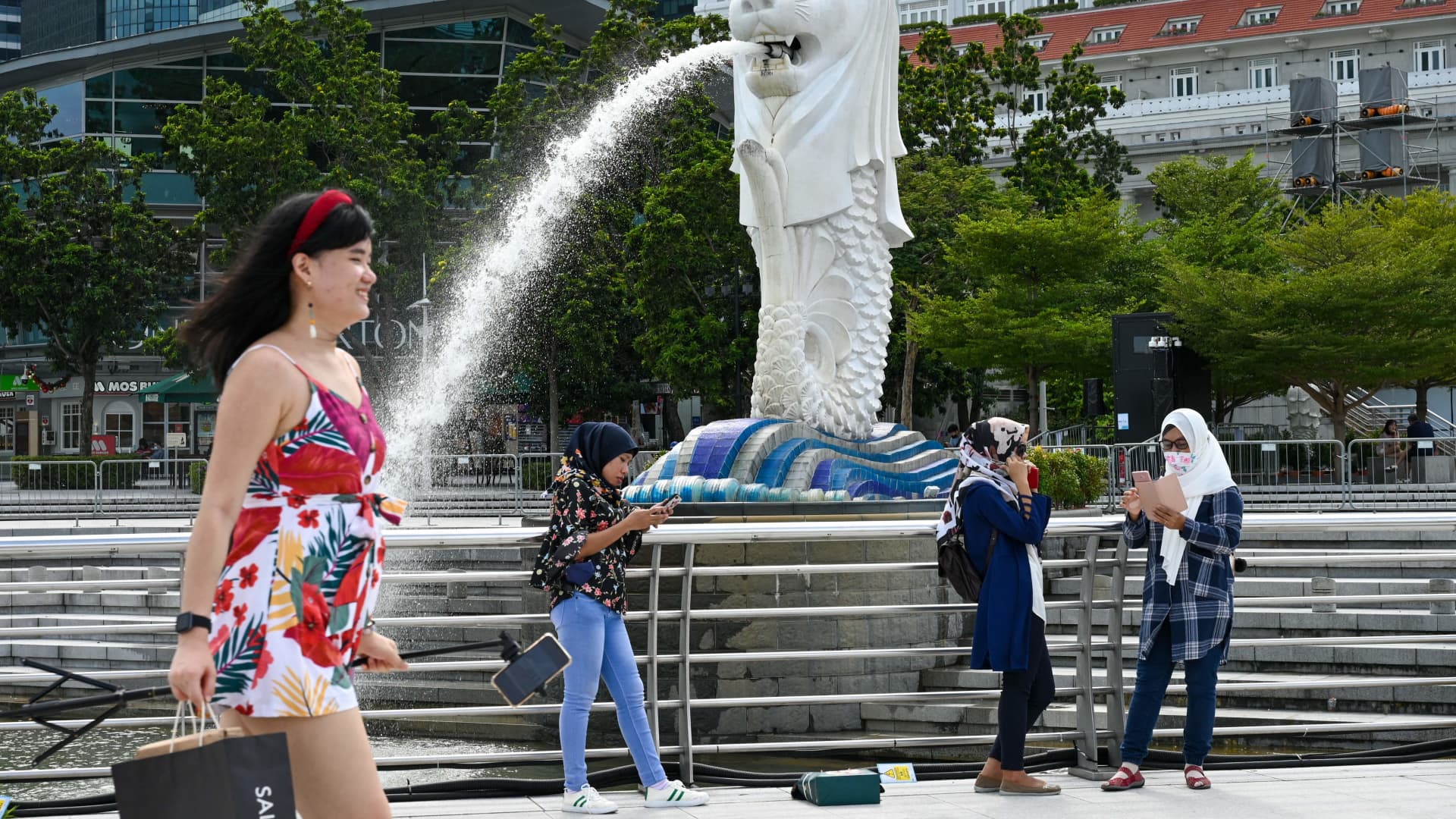SINGAPORE — Singapore is set to reopen its international borders and ease Covid restrictions next week, and that’s going to be its “biggest economic driver for growth,” according to Brian Tan, senior regional economist at Barclays.
“By our estimates, if we get mobility at places like recreational areas and workplaces going up by just 10%, you’re going to get growth of about 3% to 4% of GDP. That’s a fairly big jump,” Tan said on CNBC’s “Street Signs Asia” on Friday.
Starting March 29, people will be able to gather socially in groups of 10 instead of the current 5-person limit. More employees will be able to return to offices and capacity limits for large events will also be increased, Singapore’s Prime Minister Lee Hsien Loong announced Thursday.
“We’re also expecting that the resumption of international travel … there’s a gap of about 4% of GDP that could potentially be filled,” Tan added.
However, with that growth comes domestic inflation pressures, along with an already tight labor market and rising global commodity prices.
“That’s going to set the stage for the Monetary Authority of Singapore to implement fairly aggressive policy tightening in April,” said the analyst referring to the country’s central bank.
Analysts from research firm Capital Economics and DBS Bank also said on Friday they are expecting MAS to tighten policy at its meeting next month following the listing of restrictions.
“We think that is going to be positive for the currency,” Tan said.
The Singapore dollar was trading at $1.356 Singapore dollars against the greenback. Singapore’s benchmark index, the Straits Times’ Index, was 0.5% higher on Friday, a day after the slew of announcements on easing measures.
All fully vaccinated travelers and non-fully vaccinated children aged 12 and below can also enter Singapore without having to apply for entry approvals starting April 1.
Tan added that the reopening of borders will pave the way for a “good macroeconomic outlook” in Singapore, by helping to attract more foreign direct investments.
“The fact that we are able to reopen ahead of some of the other economies in Asia also suggests that it cements some of the safe haven status that Singapore has.”
